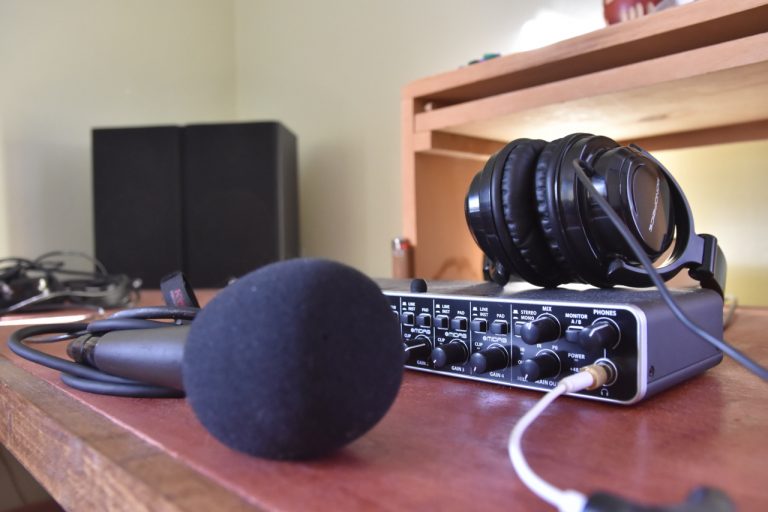By Roberto Alejandro, Editor-in-Chief
As is being widely reported, the Federal Communications Commission, under the leadership of Trump chairperson appointee Ajit Pai, has repealed rules designed to guarantee that all traffic on the internet is treated equally by broadband providers—the companies, like Comcast, that regular people sign up “for internet” with.
The debate over “net neutrality,” the term coined for the idea that all traffic should be treated the same by internet providers, has been raging for some time. There are, to my eye, two main reasons broadband providers think they should be able to treat different types of traffic differently. The first is that not all internet traffic is created equal. Internet bandwidth, like the number of lanes on a road, is limited, and content streaming companies like Netflix, to give an example, take up much more of that bandwidth than say, the site you are currently reading. You need more bandwidth to send a high definition movie to a user without a million and one buffering issues; whereas you need less bandwidth to send a print article like this one, even with images and whatever else.
Providers, therefore, have argued that they should be able to charge companies like Netflix more for the amount of bandwidth they take up, since that bandwidth is a limited resource which also costs money to maintain. This argument, however, is a bit misleading, because broadband providers already charge companies extra for delivering their content more expeditiously, it is simply that net neutrality rules required that Google and Netflix, for example, pay the same rate for that extra bandwidth they are each using, which limits the provider’s ability to negotiate a higher rate with one company if they think they can squeeze more cash out of them.
Not surprisingly, large tech companies like Google, Facebook, and Netflix, have generally come down on the side of net neutrality, not feeling they should have to pay more for internet bandwidth simply because they have been more successful at attracting users for their product(s). But these companies also had their start on the internet, and if it had not been for net neutrality, larger companies with whom they were competing at the time could have paid to ensure that startups like Netflix or Facebook did not have sufficient access to bandwidth to provide their service and grow into the behemoths they are today.
Of course, the second reason broadband providers are opposed to net neutrality, and what this is all likely truly about, is that it prevents them from further monetizing their broadband networks, by not only charging end users like their internet service customers, but by charging the companies producing the content being distributed via the web to those internet service customers, and being able to do so on an individually negotiated rather than set basis.
Yesterday, on Dec. 13, StayUp.News published a concert review of Lil Pump’s show at The Fillmore in Silver Spring, MD, on Dec. 5. Young artists like Lil Pump, or the $UICIDE BOY$, have used internet services like Soundcloud to release and distribute their music, often for free, and build followings that have blossomed into careers.
And while Soundcloud has helped artists like Chance the Rapper, as well as the aforementioned, insert themselves into the national consciousness, it has also struggled as a startup. Undoubtedly, music streaming is not as data-intensive as visual content streaming (think movies on Netflix), but what might become of the ability of young artists to pursue independent music careers if their fans cannot stream their music efficiently because Soundcloud cannot pay what Google or Facebook can for bandwidth due to its struggles? Or because broadband provider Y has made a deal with corporation X that is now throttling the speeds to everything else so corporation X can deliver its content faster than its competitors? Soundcloud, or an equivalent, might not even be corporation X’s competitor, but since internet broadband is finite, it will not matter, corporation X’s online content could be fast while everyone else slows down simply because corporation X has paid to reserve more bandwidth—more of the lanes on that road—to itself.
All of this is somewhat alarmist, undoubtedly, but a generation of Hip-Hop and other artists, not to mention all sorts of young entrepreneurs, is relying on an internet that, up to now, has not been allowed to discriminate between a Lil Live in My Mom’s Basement track and a Tidal promoted world exclusive from Jay-Z (okay, maybe Tidal is a bad example). The neutrality of the internet has meant that when you streamed Lil Live in My Mom’s Basement’s new song on Soundcloud or Spotify, it streamed just as smoothly as anything you hear on, say, Apple Music. It meant the download from Lil Live in My Mom’s Basement’s personal music site proceeded at the same pace as your purchases on Google Play or Amazon.
That has the potential to change with the FCC’s repeal of net neutrality, impacting the ability of young artists to develop a following without major label or corporate backing. Now that broadband providers will be able to treat different types of internet content differently, the FCC may have just brought the hammer down on an entire generation of aspiring Hip-Hop artists.
StayUp.News documents social and political issues through Hip-Hop, amplifying unheard voices in a language all their own. But we can’t do it without you. Support this important mission:

